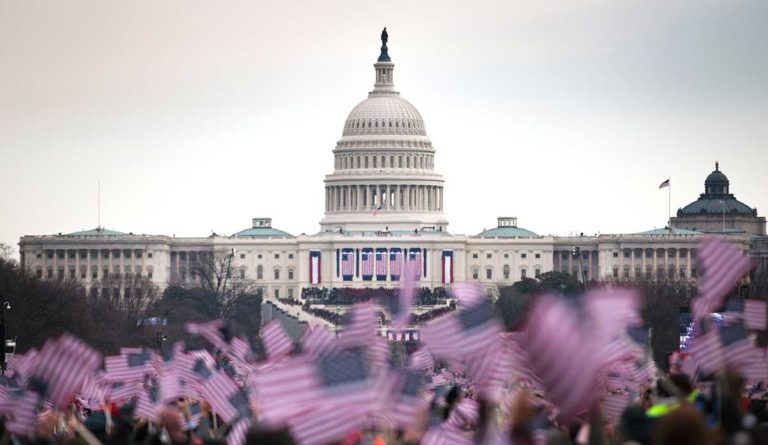Lessons from 1993
I am more optimistic about the ACA's fate than at any time since November 9th. The current fight feels more like 1993 when Clinton failed than 2009 when Obama succeeded.

Read Time: 6 minutes
Published:
President Trump. I am stunned to see these two words side by side on my computer screen. But here we are. Donald Trump’s inauguration today opens a dramatic new chapter in the debate over health reform in the United States. I thought we were done fighting over the ACA’s existence. In my office at home I have a sign that I kept from being outside the Supreme Court the day King v. Burwell was decided in June 2015. “The ACA is Here to Stay” it reads.
The pendulum on opinions about the law’s future quickly shifted last November. After Hillary Clinton lost many people said it was a done deal that the ACA would be repealed. Without question it is still vulnerable, however, I am more optimistic about the ACA’s fate than I have been at any time since the morning of November 9th . Recent history makes it clear just how hard it is to pass major health reform legislation. Yes, the type of reform that Paul Ryan, Mitch McConnell, and Donald Trump are trying to enact is fundamentally different from what Bill Clinton and Barack Obama attempted and so the lessons do not apply exactly. But the current reform debate feels more like the failed effort in 1993/1994 than the successful one in 2009/2010 .
I am more optimistic about the ACA’s fate than I have been at any time since the morning of November 9th
Health Reform is Inevitable?
When Democrats took control of all three branches of government in 1993 there was a widespread desire to pass comprehensive health reform. This was the moment. Health reform was inevitable. Yet while there was consensus on a desire to pass health reform, there was no consensus on what type of reform to pass. Democrats couldn’t decide whether to push for a single payer system or something more moderate. They considered using reconciliation but Senator Byrd said no. Their lack of consensus created a vacuum that opponents used to own the messaging. As a result, the Clintons’ reform went nowhere, dying without a vote on the floor of either chamber.
Republicans right now agree they want reform. They believe it is OK to fight over the details because repeal is inevitable. But they are far from a consensus on what to replace the ACA with once it is repealed. They have tried to get around this by delaying the date that repeal would go into effect and focusing primarily on what they can remove through reconciliation. This process lowers the vote threshold in the Senate from 60 votes to 51. However, even this is a very tough bar to clear with almost no room for a single defection. A handful of Senators have recently made it clear that they believe it would be a mistake to repeal the law without replacing it, raising questions about whether reconciliation is even feasible.
Some have argued that enough Democrats will vote with Republicans on a replacement bill in order to mitigate the damage done by repealing the law. However, that does not seem to be the case. Democrats seem to have learned from the successful efforts by Republicans in 1993 and 2009 by uniting against the party in charge.
Letting Congress Lead
One way this moment feels very different from 1993 is that the policy agenda is not being driven by the White House. Trump is criticized for saying he will leave the policy details of health reform to Congress. To some extent this is out of necessity – I don’t think he really understands the policy details. Even so, he is putting in place a health policy team of Tom Price and Seema Verma that do understand the ACA. I suspect we will see a lot more policy details from the Trump administration once Tom Price and Seema Verma are confirmed.
But letting Congress lead the conversation is actually smart politics. One of the main lessons from 1993 was that Clinton should have more fully respected the role of Congress in shaping policy. Committee leadership in the House and Senate were not interested in rubber-stamping a White House bill. Some accused the Obama administration of over-learning this lesson and being too distant, but letting Congress drive the process was an important reason the ACA passed.
Republicans in Congress do not seem to have learned a couple major lessons from 1993 and 2009 . Most importantly, the clock is ticking and compromise gets harder with time, not easier. The Trump administration will soon have to produce a budget. The midterm elections will come sooner than seems possible. Long delays in the legislative process give an opening to opponents to attack.
It might already be too late for Republicans to come to a meaningful consensus . House Democrats in 2009 made an unprecedented move by writing a single bill for all three major health reform committees. It’s true that this bill was not introduced until July 2009 and so it might seem like Republicans still have many months to get to this point. But remember that leading Democrats had actually spent most of 2008 working through issues, before even knowing whether the next president would be Barack Obama or John McCain. Paul Ryan seemed to want to do the same thing last summer with “A Better Way,” but there was reportedly enough infighting over this that the blueprints are not detailed enough to provide much of a road map.
It is still far too early to know how this will play out. Republicans are under enormous pressure to do something. But they are finding that being in a position to deliver on threats is very different from being in the minority when you can promise just about anything knowing it won’t happen. Donald Trump is the wild card in this process. Politics has never seen anyone quite like him and he has already shown he can change national (and international) dynamics with a Tweet. He has encouraged Congress to act quickly and to pass something that makes insurance available to everyone. I am not convinced either is possible. In fact, the two might be mutually exclusive.
Featured Image: DVIDSHUB, Marines support 57th Presidential Inauguration, used under CC BY license, cropped from original. Audience members wave flags from the National Mall during the 57th Presidential Inauguration in Washington, Jan. 21, 2013. More than 700 thousand people made their way to the National Mall for the day’s events. For centuries, Marines and other service members have supported the inaugural events. U.S. Marine Corps photo by Staff Sgt. Mark Fayloga.



